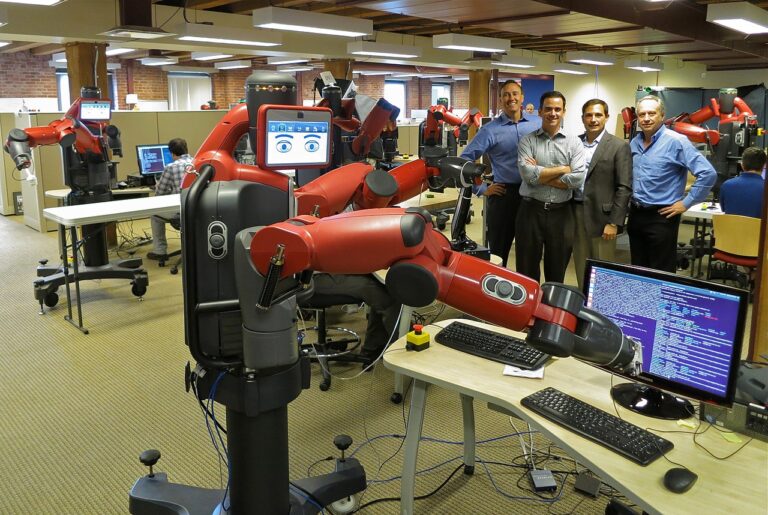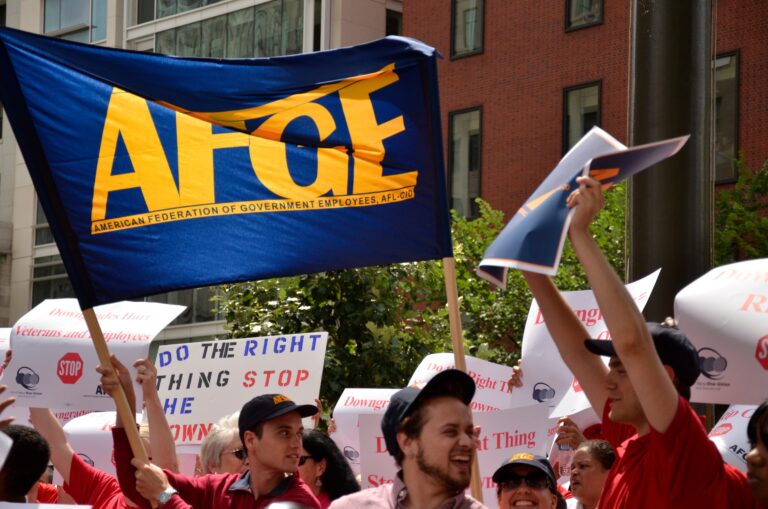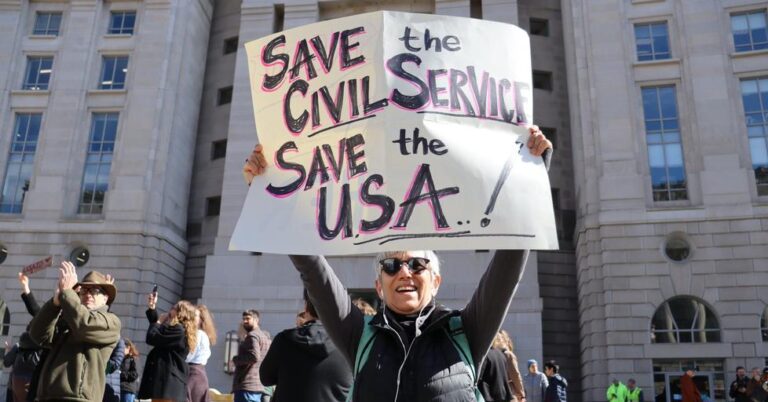Vail Kohnert-Yount is a student at Harvard Law School.
As the government shutdown lumbers into its 28th day, federal workers are beginning to file for unemployment en masse, reports the New York Times. About 380,000 furloughed federal employees are eligible for unemployment, and the longest government shutdown on record is forcing tens of thousands of these workers to seek unemployment benefits to afford essentials like groceries and utility bills. The typical federal worker affected by the shutdown has been denied $5,000 in pay so far. Meanwhile, over 1,800 GoFundMe pages have been started for federal workers needing financial assistance.
Over a hundred Instacart workers are asking customers to support them—by leaving a $0.22 gratuity. The counterintuitive call for tiny tips is intended to circumvent the company’s new practice of paying workers less when customers tip more. Workers behind the petition report that if customers instead tip just 22 cents when they make an order, and then either adjust the reward higher after delivery or tip in cash, they can “keep Instacart from stealing our tips.” “As a shopper, now I feel like, we’ve made you all this money, and then you’re going to do this to us?” Instacart worker Mia Kelly, who said the change to the pay system has halved her daily earnings before expenses, told Bloomberg. The Instacart petition also calls for the company to make the default tip option 15% rather than 5%, establish a minimum rate per hour and per trip, provide an accurate breakdown of how workers’ pay was calculated, and stop factoring in tips when it considers how much to pay. Instacart has a history of fighting workers’ rights. In 2017, the company paid $4.6 million to settle a class action suit brought by its contractors to change its user interface to clarify the difference between a tip and a “service fee,” money that can go to the company instead of the worker. Instacart also joined other gig economy companies in lobbying California lawmakers to exempt them from a state Supreme Court ruling making it harder to treat workers as contractors rather than as employees entitled to minimum wage.
The California Private Attorneys General Act, a unique state law intended to help workers vindicate employment law violations, is facing resistance from business lobbyists seeking to repeal the law in 2019. Under PAGA, individual employees may be “deputized” to sue their employers on behalf of the state for more than 150 different violations of the California Labor Code. In November 2018, the California Business & Industrial Alliance sued the state alleging PAGA is unconstitutional and that it has led to a spate of “business-crushing lawsuits.” While there has indeed been an increase in PAGA lawsuits in recent years, Mariko Yoshihara, legislative counsel and policy director for the California Employment Lawyers Association, said the it is the “direct result of an exponential rise in forced arbitration agreements that workers are routinely required to sign as a condition of employment,” which prohibit workers from vindicating their rights in court and instead shunts complaints to private arbitration proceedings. “PAGA now stands as a critical and one of the last remaining tools for workers in California to take collective action to remedy violations of their rights under the Labor Code,” Yoshihara said.
Ford, Boeing, Toyota, and other manufacturers are equipping employees with “industrial exoskeletons,” or wearable robotic devices that enhance workers’ strength and endurance, reports the Wall Street Journal. Employers and vendors typically claim that these devices reduce occupational musculoskeletal disorders, increase productivity and work quality, and overall improve worker stamina and health. In actuality, there is very little peer-reviewed, scientific research on the benefits and consequences of industrial exoskeletons, writes Blake McGowan in Occupational Health & Safety.






Daily News & Commentary
Start your day with our roundup of the latest labor developments. See all
December 5
Netflix set to acquire Warner Bros., Gen Z men are the most pro-union generation in history, and lawmakers introduce the “No Robot Bosses Act.”
December 4
Unionized journalists win arbitration concerning AI, Starbucks challenges two NLRB rulings in the Fifth Circuit, and Philadelphia transit workers resume contract negotiations.
December 3
The Trump administration seeks to appeal a federal judge’s order that protects the CBAs of employees within the federal workforce; the U.S. Department of Labor launches an initiative to investigate violations of the H-1B visa program; and a union files a petition to form a bargaining unit for employees at the Met.
December 2
Fourth Circuit rejects broad reading of NLRA’s managerial exception; OPM cancels reduced tuition program for federal employees; Starbucks will pay $39 million for violating New York City’s Fair Workweek law; Mamdani and Sanders join striking baristas outside a Brooklyn Starbucks.
December 1
California farmworkers defend state labor law, cities consider requiring companies to hire delivery drivers, Supreme Court takes FAA last-mile drivers case.
November 30
In today’s news and commentary, the MSPB issues its first precedential ruling since regaining a quorum; Amazon workers lead strikes and demonstrations in multiple countries; and Starbucks workers expand their indefinite strike to additional locations. Last week, the Merit Systems Protection Board (MSPB) released its first precedential decision in eight months. The MSPB had been […]